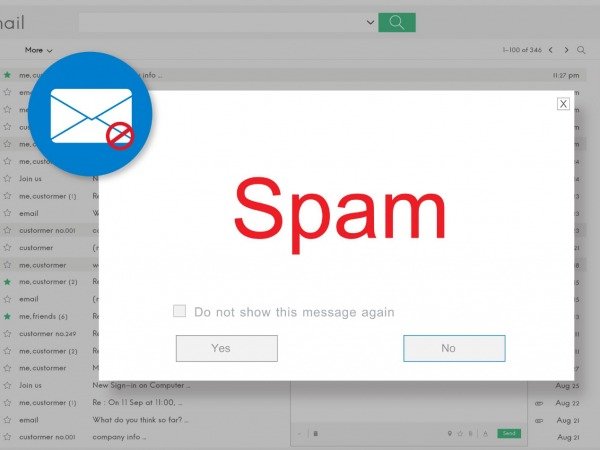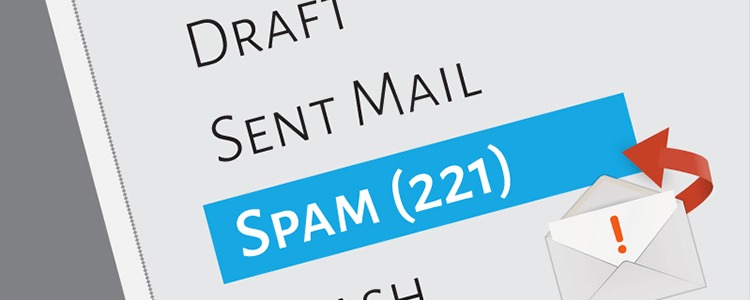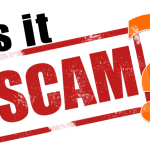Have you ever been going through your email and be like, ‘Hey! I don’t recall asking and/or subscribing to this’.
It’s a common experience, Spam has to do with mail we did not ask for similar to phishing (which I have often spoken about) the oxford dictionary calls them unsolicited.
So how and why do we still end up receiving random mails we never even ask for? Normally, email ads from business websites are only gotten when you specifically subscribe to them and not otherwise.
When otherwise, this mail is meant to draw your attention in for you to open them and boom! You’re hooked. This article will be talking about various reasons why we receive spam mail, what to do when you get them, a few methods to identify them, and a few email security threats.
How to identify Spam mails
The following points can be useful when spotting spam mail when you receive them, that is if they are not automatically moved to your spam folder depending on what mail service you are making use of.
1. If it’s from an Unknown sender.
Spam mail can also refer to junk mail i.e. mail you do not want or ask for. No mail from an official website will
be delivered to your spam folder (most of the time anyway), so once the email received is from an address you are unfamiliar with chances are its spam mail.
2. If there are Errors
Note that for the most part, I will reference “official Websites” in comparison to spam. When a received email
carries various typographical errors like improper punctuation, omitting words, terrible spacing, bad spelling, odd or off mannerisms, and so on.
Emails one subscribes to (from an official website) almost never carry typos. Everything is in order to the minutiae, unlike spam which is hastily put together and sent out in bulk to random emails and the likes.
When you notice too obvious typos, chances are its spam. And yes, I know spam and phishing are getting more
sophisticated by the day but sadly the same point still stands.
3. A request for sensitive information
Every time your bank or network provider calls you, they will never request your pin or password or any of that information. This info is called sensitive because they are never to be given over the phone only in person. Once an email received starts to ask for such sensitive Intel, it’s obviously spam.
4. Messages with a sense of urgency
Limited time offers, act now or you may lose, unbelievable discounts, impressive offers? Yeah, that’s spam.
- Must Read: How Scammers take Advantage of the Holiday Seasons
Spam security risks and/or threats

There is this thing in movies where you receive this strange mail, the mail is so intriguing that you open it, follow some link because you are fascinated by the mail and then you end up on some weird site or the link might even be broken.
Long story short, someone some where has either gotten remote access to your device or installed malware of some kind.
It is not advisable to open random links you receive via email just because the offer is intriguing or the person you spoke with over the phone sounded genuine. We live in a day and age where information can be a currency, where people send money to strangers, where fraud and internet scams are the order of the day.
- Trending post: Popular COVID-19 Scams and How to avoid them Instantly
It is mostly rampant during the festive seasons or where the year is coming to an end or more recently the COVID 19 pandemic.
Someone some where wants to trick you into spending money on something that does not exist or in this case wants to steal your phone data.
A few common security threats are Trojan horses, viruses, spyware, and so on. To non-programmers or us regular folk, a Trojan horse refers to the big wooden horse which was meant as a gift but ultimately was how the Greeks infiltrated Troy and won the Trojan war.
Virus to the COVID-19 or ebola and Zombies refer to the undead, brains! and what not – or maybe that’s just me.
A Trojan horse presents itself as something legitimate in order to get past your system/devices defenses and then unleash the damage it came for; be it to destroy your system, to steal your information, or give remote access to your system.
- Revealed: Everything you need to know about Social Media Scams (Safety Guide)
Legend tells of the likes StormWorm, Slammer, Stuxnet, ILOVEYOU the list goes on. The damage done by these bad boys was unprecedented. When an email is from an unknown source, it is best you do not open it, it’s better to be safe than sorry.
If you do open it, do not follow random links no matter how good or safe it sounds. Viruses and worms are mostly there to damage your system.
Once present on your device, they stay there if not noticed and spread from system to system.
Zombies make your email or device a sort of breeding ground for phishing other devices. So be careful what attachments you download and the links you follow.
How to prevent spam mail
Depending on the email platform you are subscribed to, they are various ways to filter these emails that come in but it’s not a sure method, a few may slip through the cracks and make it onto your inbox. Just do the simplest thing possible, delete suspicious mail. Then again;
- Do not open weird or suspicious looking web pages or addresses in your spam folder.
- Just outright delete suspicious looking messages.
- Never disclose your email or personal information on any site unless sure of the legitimacy of the site.
- Always try your best to unsubscribe from websites’ ads you do not or no longer need.
- Before giving out your email on a site that needs it, try to check the sites privacy policy.
With the little I have said, I’d like to draw the curtains on our little Ted talk about spam and you should be pre informed, almost anything is possible. It’s the modern age after all, we’re not using floppy disks anymore.
Other handpicked Articles for just for you:
- Explained: The New Coronavirus Scams & How to Avoid them
- The Top Common Investment SCAMS on Social Media Platforms
- How to Recognise Phishing Scams and also Avoid Them
- Everything You Need to Know About the Covid-19 Scams (Safety Guide)


